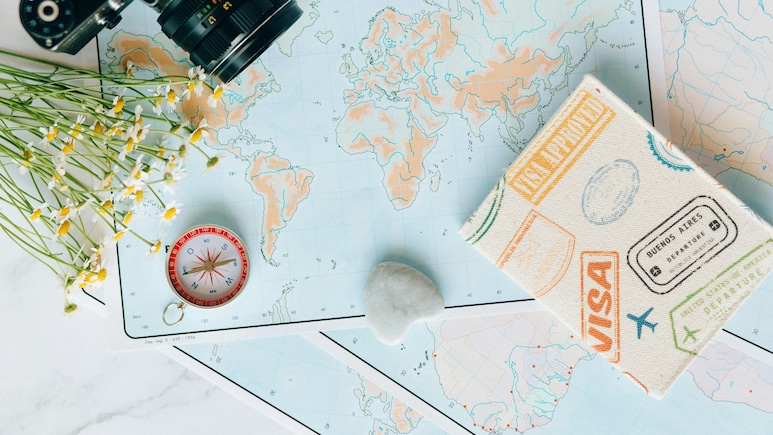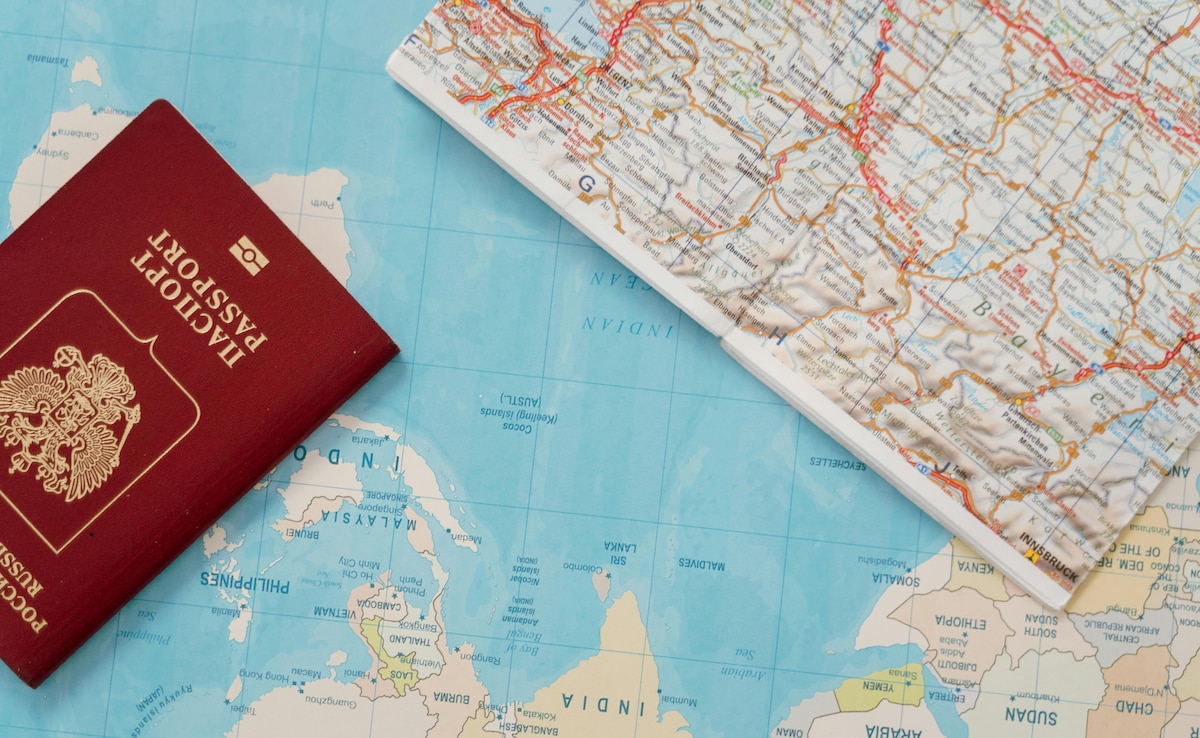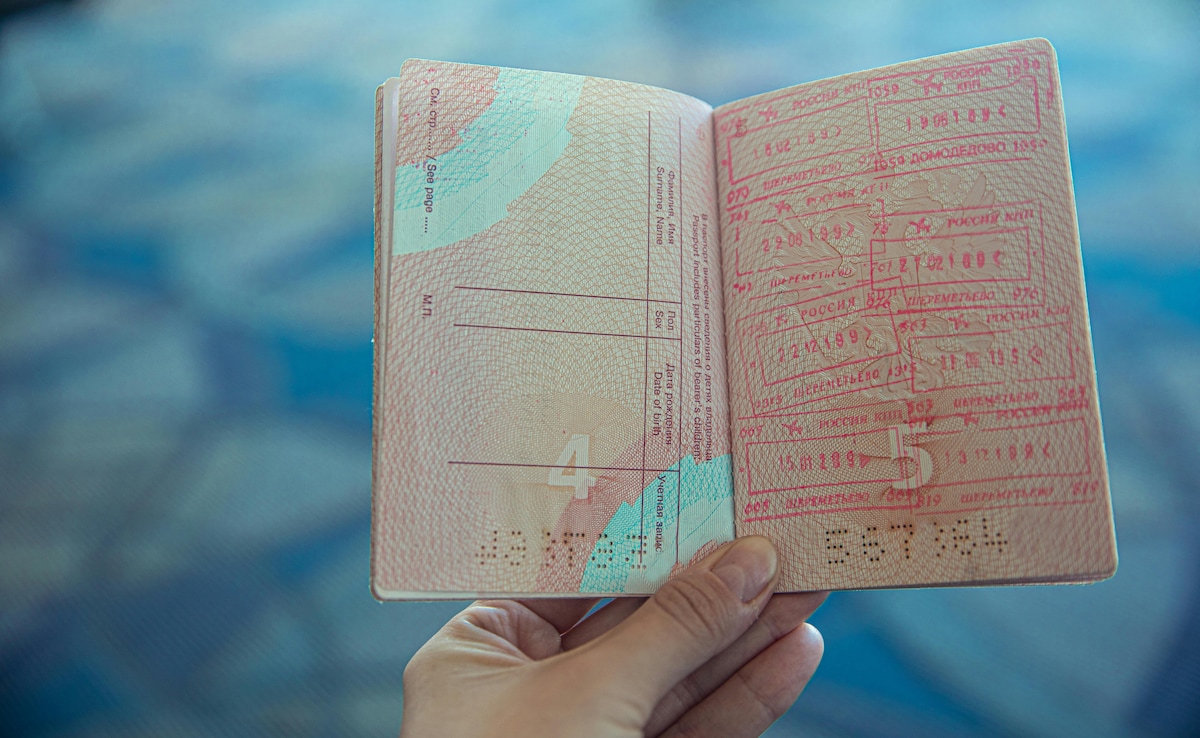
- Mexico once asked visa applicants to describe their moustache as bushy, scanty, or clipped
- US visa forms have included questions on Nazi involvement and which side of the bed a wife sleeps
- Australia asks if applicants have visited a farm recently due to strict biosecurity concerns
Travelling abroad often begins with daydreams of new places and cultures. But before you step onto that plane, there is the universal hurdle of the visa process. It is paperwork-heavy, bureaucratic, and rarely enjoyable. Yet every now and then, a form throws in a question so bizarre that it makes even the long embassy queues worth remembering.
From moustache descriptions in Mexico to questions about Mafia ties in Japan, travellers around the world have come across visa queries that are equal parts serious, cultural, and absurd. They may reveal how countries define identity, guard borders, or simply carry forward outdated paperwork. But collectively, they show that the visa process is not just a hurdle, it is also a strange window into global bureaucracy.
Here are 14 of the most unusual visa questions from across the world - each one a reminder that crossing borders often comes with unexpected quirks.
Also Read: 7 Best Countries Where Indians Can Get A Tourist Visa Easily

Photo Credit: Pexels
14 Strangest Visa Questions Asked Around The World:
1. Mexico: Describe Your Moustache - Bushy, Scanty Or Clipped?
In Mexico, visa applicants were once asked to describe their moustache or beard, with options like bushy, scanty, or clipped. What might look like a barber's survey was actually part of an official document. Whether it was meant for identification, cultural profiling, or simply a remnant of the 1970s moustache boom remains a mystery.
Even stranger, another form reportedly instructed: "Foreigners please sing in the box." It was almost certainly a typo for "sign," but for applicants, the idea of performing in front of an immigration officer was baffling enough to be retold as travel legend.
2. United States: What Side Of The Bed Does Your Wife Sleep On?
The United States is known for its detailed visa process, but some questions have been more bewildering than reassuring. One asked bluntly: "Between 1933 and 1945, were you involved in persecutions associated with Nazi Germany or its allies?" Serious in intent, but almost surreal for modern-day travellers filling out a tourist visa.
Then came the bizarrely domestic: "What side of the bed does your wife sleep on?" Whether this was to confirm marital authenticity or simply an over-curious form is unclear.
Applicants have also faced questions like: "Have you ever been directly involved in a human organ or body tissue transplant?" and "Are you the spouse, son or daughter of a person who has been involved in terrorist activities?" Questions that sound like scenes from a spy thriller, but which underline the US's exhaustive approach to background checks.
Also Read: New Rules For U.S. Visas From India: What Has Changed And What Stays The Same
3. Australia: Have You Been To A Farm In The Past Six Weeks?
Australia's application forms include the unusual question: "Have you been to a farm in the past six weeks?" To many first-time visitors, it feels oddly specific, but the reasoning is tied to Australia's strict biosecurity measures.
The country is fiercely protective of its agriculture, and even a speck of foreign soil on shoes could pose a serious risk to crops and livestock. While the question makes sense in context, it often catches travellers off guard.
Also Read: How To Apply For Australian Tourist Visa: Tips, Fees And Common Mistakes To Avoid
4. Middle East: How Many Wives Do You Intend To Bring?
In one Middle Eastern country, male applicants were once asked: "How many wives do you intend to bring?" For locals, the question was in line with existing laws and traditions, but for foreign travellers, it highlighted how cultural norms shape immigration rules.
For many applicants, it was a moment of culture shock, as marital practices they had never considered suddenly became part of official paperwork.
Also Read: This Gulf Country Offers A 10-Year Visa Without A Job Or Property Requirement
5. China: Visiting For - A Visit?
A Chinese visa form once listed "visit" as a reason for visiting. The tautology was most likely a mistranslation, but it left applicants amused and confused. It served as a reminder of how small translation errors can turn serious official documents into sources of comedy.
6. United Kingdom: Have You Ever Committed War Crimes?
The UK is no stranger to weighty visa questions. One student visa form asked: "Has the applicant ever been involved in war crimes, crimes against humanity or genocide?" The question was rooted in security, but felt disproportionately intense for someone hoping to study English literature or physics.
Another curious entry was the vague prompt: "Name three things about..." Applicants were left wondering whether they were meant to list facts about Shakespeare, the weather, or perhaps why they love tea.
7. South Korea: Would You Like Your Visa Waived?
Not all unusual visa practices are alarming. South Korea has taken a different approach by using visa policies as tourism incentives. To attract Chinese travellers, the country waived visa fees and made duty-free refunds easier.
This example shows how visa policies can be softened to encourage travel rather than hinder it. While not funny in the usual sense, it was a refreshing departure from the standard red tape.
8. Africa: Why So Many Rejections After High Fees?
For African applicants, the oddity lies not in strange questions but in staggering rejection rates. In 2024 alone, travellers lost more than 67 million USD on Schengen visa applications that were denied.
Countries like Nigeria, Ghana, and Senegal recorded rejection rates as high as 50 percent, sparking debates about systemic bias and discrimination. The issue highlighted the unequal realities of global mobility, where the ability to travel is often linked to privilege.
9. Canada: How Did Your Previous Relationship End?
Canada once asked applicants: "How did your previous relationship end?" The question was used to verify the authenticity of current marriages, especially for spousal visas.
For applicants, it meant revisiting break-ups or personal heartbreaks on official paperwork - a process that felt more suited to a dating app than immigration control.
10. Congo: Have You Visited A Traditional Healer Recently?
In Congo, applicants were asked: "Have you visited a traditional healer in the last 14 days?" The reasoning lay in public health concerns, as traditional remedies may not align with international medical standards.
For travellers, it was a surprising blend of folklore and bureaucracy, as centuries-old practices met the modern rules of international travel.
Also Read: Bahrain Visa For Indians Starts At Just ₹1,168. Here's How To Apply
11. Japan: Have You Ever Been A Member Of A Mafia Organisation?
Japan's visa form does not shy away from directness. It asks: "Have you ever been a member of a Mafia organisation?" The goal is to identify connections to the Yakuza or other organised crime groups.
While serious in context, the bluntness of the question often catches applicants by surprise. It reads more like a scene from a crime film than an official immigration form.
12. Russia: Do You Have Nuclear Engineering Skills?
Russia's visa forms include the question: "Do you have any professional skills, training or experience in chemical, biological or nuclear engineering?"
It may sound like an audition for a Bond villain, but it is actually tied to national security. For Russia, the form doubles as a tool to identify potential risks, even among travellers seeking tourism or study visas.
13. England: Are You A Nobleman Or Aristocrat?
One English visa form reportedly asked: "Are you a nobleman, an aristocrat or a member of a royal family?" Whether the intent was protocol, diplomatic recognition, or simple curiosity, it was a question that felt more suited to a Jane Austen novel than a modern travel document.
14. The Questions That Never Appear On Paper
Sometimes, it is not the questions asked that feel strange, but the ones left unasked. Many visa forms avoid topics like mental health, LGBTQ+ identity, or political leanings, even though these factors can still affect entry in certain countries.
Travellers often find themselves navigating these unspoken rules, learning that silence can be as significant as a written question.
Also Read: Visa On Arrival vs E-Visa: Which Is More Convenient For Indian Travellers

Photo Credit: Pexels
Why These Questions Exist?
At first glance, some of these questions feel laughable, but each has a reason - even if not immediately obvious.
- Security concerns: Questions about war crimes, terrorism or nuclear expertise may seem extreme, but they are rooted in safety. Governments use them to screen for possible risks, even if the likelihood of a truthful confession is slim.
- Cultural norms: Local traditions often shape immigration paperwork. Questions about religion in India, or polygamy in parts of the Middle East, are reflections of the values and laws that guide society. What feels intrusive to one traveller might feel standard practice to another.
- Clerical errors: Then there are the pure accidents. Typos like Mexico's "sing in the box" are not meant to confuse or amuse, but they do highlight how bureaucratic language can go unchecked. In an age where many forms are translated or updated digitally, even a single word error can go global.
- Legacy paperwork: Perhaps the most common reason is simple inertia. Forms are often copied forward without review, leading to outdated or irrelevant questions. What once seemed useful in a Cold War-era context might still be printed decades later, long after its purpose has faded.
In short, every odd question tells us something - whether it is about fear, culture, human error, or the slow churn of bureaucracy.
How Travellers React?
Travellers often meet these questions with a mix of frustration, disbelief, and humour. For some, they are stressful reminders of how much power lies in paperwork. Being forced to pick a religion, recount past relationships, or admit to something absurd can feel alienating or even discriminatory.
Others, however, turn the experience into stories. Screenshots of strange forms often end up on travel blogs, Reddit threads, or social media, sparking laughter and debate. One Reddit user wrote: "I did not know my beard was a national security threat." Another added: "I sang in the box. Still got denied."
There are also moments of cultural learning. Travellers confronted with questions about farms, polygamy, or traditional healers may initially react with confusion, but later recognise how these reflect the realities of the destination. It is bureaucracy doubling as a crash course in culture.
Also Read: How An Indian Allegedly Got 5-Year Multiple Entry Schengen Visa In Less Than A Week

Photo Credit: Pexels
What It Reveals About Global Travel?
Visa forms may look like dull paperwork, but they reveal much more about the world than we think:
- A reflection of national fears: From terrorism to nuclear skills, questions show what countries prioritise when screening outsiders.
- A mirror of cultural values: Religion, marriage, and traditional practices often appear on forms, making bureaucracy a cultural lesson.
- A sign of global inequality: Applicants from Africa and Asia face higher rejection rates and costs compared to those from wealthier nations, highlighting imbalances in mobility.
- Proof that bureaucracy is human: Typos, mistranslations and outdated questions demonstrate that forms are shaped as much by error as by intent.
- An unlikely source of humour: From moustache descriptions to Mafia checks, visa questions sometimes offer comic relief in a process otherwise marked by stress.
Also Read: Which Countries Offer The Easiest Work Visas For Indians? Top 8 Countries To Explore
Together, they remind us that visas are not just entry stamps. They are cultural artefacts that capture history, politics and quirks - a paper trail of how the world negotiates who gets in and who does not.
Track Latest News Live on NDTV.com and get news updates from India and around the world

